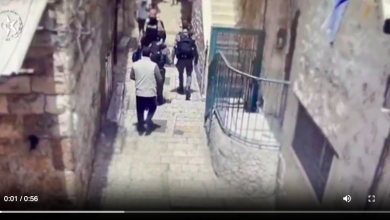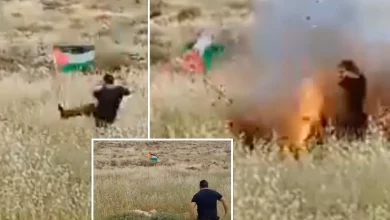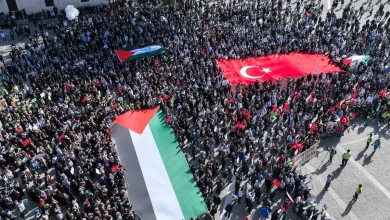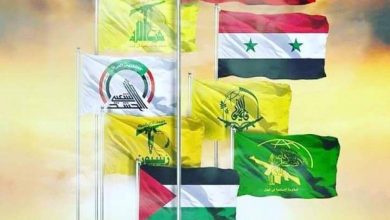Turkey PM denies “Turkish Spring” amid fresh clashes

Turkish Prime Minister Recep Tayyip Erdogan on Monday rejected talk of a “Turkish Spring”, facing down the worst protests in his decade-long rule as fresh clashes erupted between police and demonstrators in Ankara.
Erdogan defied protesters who accuse him of seeking to impose conservative Islamic reforms on secular Turkey, stressing that he was democratically elected.
“Was there a multi-party system in the Arab Spring countries?” he said in televised comments.
AFP photographers in Ankara later saw police fire tear gas and use water cannon to disperse stone-throwing demonstrators on the fourth day of violent protests that have swept scores of Turkish cities.
Rights groups say hundreds have been wounded in clashes nationwide that have pitted stone-throwing protesters against riot police firing tear gas and water cannons since Friday.
Erdogan’s ally President Abdullah Gul on Monday urged calm and promised protesters that their voice had been heard.
“The messages delivered with good intentions have been received,” he was quoted as saying quoted by the Anatolia news agency.
Erdogan struck a harder tone, vowing: “We will stand firm” against the protests and promising his supporters: “We’ll overcome this.”
With Turkey’s allies calling for restraint and international human rights groups denouncing the police crackdown, Gul acknowledged the demonstrators’ right to protest but called for an end to the clashes.
“Democracy does not only mean elections,” he said, adding: “I am calling on all my citizens to abide by the rules and state their objections and views in a peaceful way, as they have already done.”
Erdogan had earlier denounced demonstrators as “vandals”.
He also lashed out at the social messaging service Twitter, used by many of the protesters.
“There is a troublemaker called Twitter, the worst of lies are in there,” he told the Haberturk television channel on Sunday, citing false tweets about attacks against protesters and fatalities.
“What they call social media is the nuisance of societies. Society gets terrorised this way.”
Istanbul’s main Taksim Square, where the protests first erupted, was relatively quiet early Monday as people started the first workday since tensions boiled over on Friday.
But protesters’ banners and barriers of scrap metal remained, suggesting they would return to resume days of demonstrations that have by some accounts left hundreds injured around Turkey.
Overnight, crowds marched on Erdogan’s offices in Istanbul and in the capital Ankara, lighting fires and yelling: “Dictator, resign!… We will resist until we win.”
The protest started as a small campaign against the redevelopment of Gezi Park near Taksim Square, a rare green spot in central Istanbul.
After the local protest was met with a tough police response, the unrest quickly spiralled into an outpouring of anger that threatens to tarnish Turkey’s reputation as a model for the Muslim region.
“This is a movement which is a result of growing frustration and disappointment among secular segments of society who could not influence politics over the last decade,” said Sinan Ulgen, a scholar at the think tank Carnegie Europe.
“This is an unprecedented, abrupt and unplanned public movement that has not been manipulated by any political party. It is a big surprise,” he told AFP.
Erdogan’s Justice and Development Party (AKP) is traditionally popular with conservative Islamic politicians and voters in Turkey, a secular state peopled mostly by Muslims.
It has won three successive parliamentary elections, gaining almost 50 percent of the vote in 2011.
Analysts have cautioned against describing the protests as a “Turkish Spring”, saying that Erdogan, unlike some Arab leaders toppled in recent years, was democratically elected.
But protesters feel his rule has polarised Turkish society, with opponents of the AKP government openly voicing concerns that Turkey is moving toward conservative Islam.
“We have had enough of the way Erdogan understands democracy and the way he wants to dictate his rules,” said Ozgur Aksoy, a young engineer demonstrating in Gezi Park on Monday.
“It’s not only about the park here, it is about everything else in the last 10 years. People are angry, very angry.”
In 2004, the party tried to submit an amendment on banning adultery but had to back down amid criticism from opposition parties and women’s groups.
Last year, Erdogan provoked outrage when he likened abortion to murder and again when he passed a contentious education reform allowing clerical schools for the raising of what he described as a “pious generation.”
More recently, Turkey’s parliament passed legislation curbing alcohol sales and advertising, which would be the toughest in the republic’s history if president Gul, a former AKP member, signs it into law.
Shrugging off the rising protests, Erdogan pushed ahead with what he said was a pre-planned four-day official trip abroad on Monday. His office said he was set to fly to Morocco, followed by Algeria and Tunisia.







